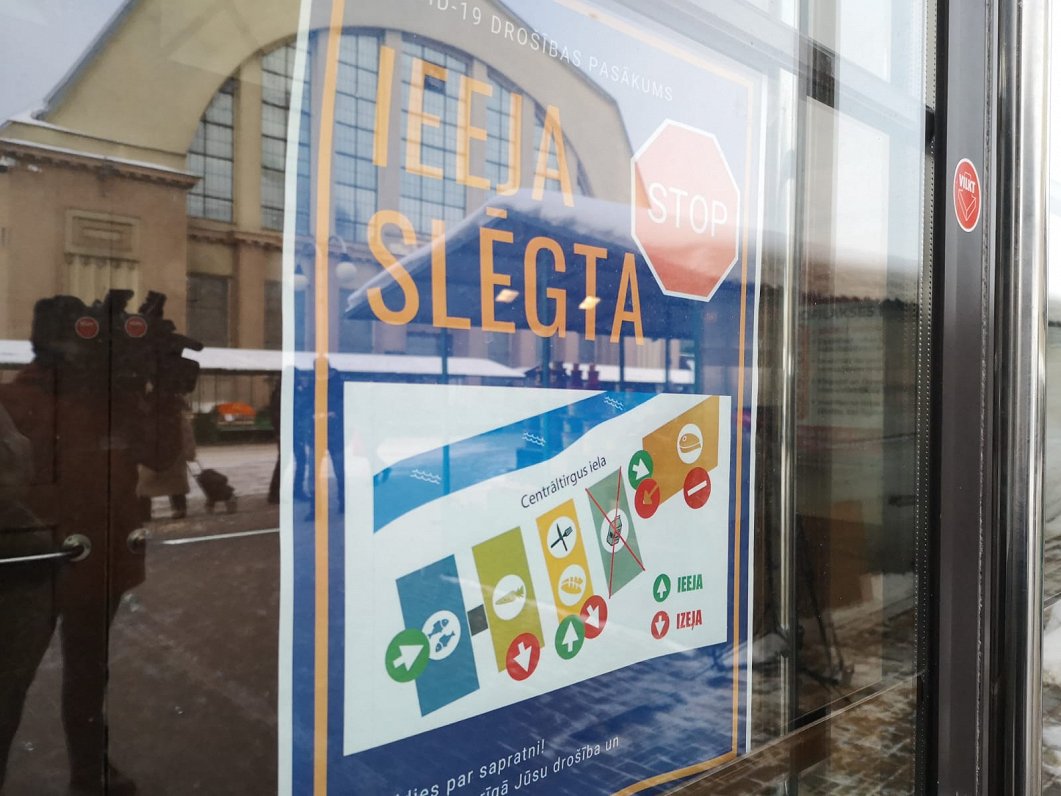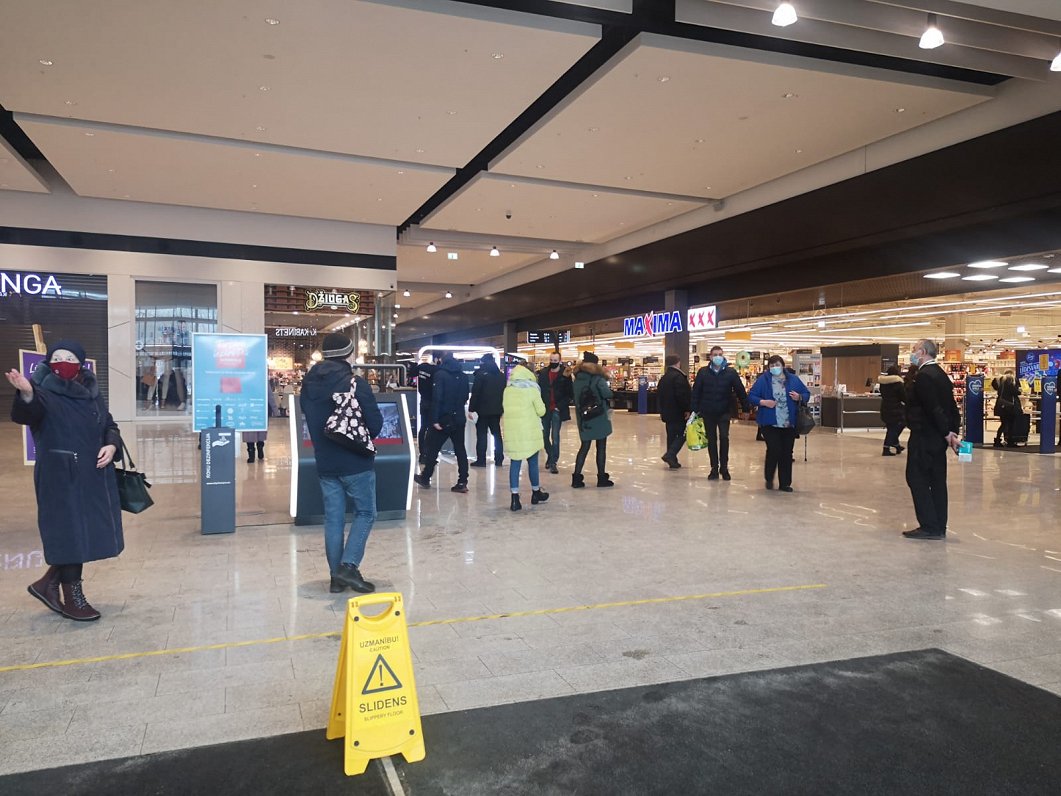Stricter rules
Since Monday 8 February, a number of fundamental principles must be respected in all retail venues:
- mouth and nose covers for both sellers and buyers,
- one-by-one visits to the store, except with a child or assistant,
- 25 square meters per buyer,
- the number of baskets and carts available corresponds to the maximum number allowed in the store,
- avoid crowding, control the flow of visitors,
- a designate trader representative must monitor the rules at all times,
- short-term promotions are banned.
Those rules, with a few nuances, are applicable to stores, malls and market pavilions alike. For example, in large malls, an electronic visitor flow tracking facility will have to be installed next week.
Queues
Stores, markets and shopping malls are forced to restrict multiple entrances and control the existing one so that the customer flow can be controlled.

With the new rules, long queues quickly formed by stores, with visitors having to wait ten or twenty minutes to gain entry. Some residents compared this to the Soviet times, when lengthy lines for food items were commonplace.
“It is crazy. Can't do this to people in your country. No job and then queues,” said Antons from Liepāja.
“It is not normal. It is also not normal that [out here] we are not standing within two meters,” said Indra.

Shoes are the top commodity
The highest demand among goods that were previously limited for sale is for shoes, top coats and pans.
“We see very practical items. Clothes and shoes,” said Maxima Latvija communications chief Liene Dupate-Ugule.
Since Monday, the customer count has gone down but their shopping carts are fuller, said merchants.
Ministries and epidemiologists said that this is a transition model to later allow all stores to work. However it remains to be seen how practical the measures prove to be as public frustration with frequent rule-tinkering grows.
Stores found to be in violation of the rules face the possibility of being shut down for a week: a sanction that might not have much impact in densely-populated areas with a variety of stores but could have serious consequences in isolated rural communities.



























